You are here
Back to topIran quits parts of critical 2015 nuclear deal

Iran quits parts of critical 2015 nuclear deal
APRNEWS - Iran said it had started scaling back parts of its commitments under its 2015 nuclear deal on Wednesday and threatened to do more if world powers did not protect it from US sanctions, a year after Washington pulled out of the pact.
President Hassan Rouhani said Tehran would move on to resuming high level uranium enrichment if the remaining signatories - Britain, France, Germany, China and Russia - did not make good on promises to shield its oil and banking sectors in the next 60 days.
Tensions have risen on the eve of the anniversary of President Donald Trump's withdrawal from the agreement, under which Iran agreed to curbs on its nuclear programme in return for the lifting of international sanctions.
The Trump administration has restored US sanctions and extended them, effectively ordering countries around the world to stop buying Iranian oil or also face sanctions. The move has wreaked havoc on Iran's already-struggling economy, while promised help from European partners as part of the deal has not alleviated its financial difficulties.
In a speech broadcast on national television, Rouhani said he had written to the remaining signatories saying Tehran does not at the current stage consider itself committed to observing restrictions regarding storing enriched uranium stocks and heavy water stocks.
Uranium enriched to much higher levels than Iran's current stocks can be used as the fissile core of a nuclear weapon, while heavy water is a source of plutonium which can be used as an alternative way to produce a warhead.
‘Narrowing window’
"If the five countries came to the negotiating table and we reached an agreement, and if they could protect our interests in the oil and banking sectors, we will go back to square one (and will resume our commitments)," Rouhani said.
Rouhani warned of a firm response if Iran's nuclear case is referred again to the UN Security Council, but said Tehran was ready for negotiations.
"The Iranian people and the world should know that today is not the end of the JCPOA," Rouhani said, using the acronym for the 2015 nuclear deal. "These are actions in line with the JCPOA."
Iranian Foreign Minister Mohammad Javad Zarif tweeted: "After a year of patience, Iran stops measures that US has made impossible to continue."
Zarif said the remaining countries had a "narrowing window" to save the deal.
UN inspectors said Iran had continued to comply with the deal after the US withdrawal.
Washington's European allies, which opposed the US pull-out, have tried and failed to come up with ways to soften the economic impact on Iran of the US move while urging Tehran to continue to comply.
Under the landmark deal agreed by US President Donald Trump's predecessor Barack Obama, the six parties to the agreement were supposed to lift nuclear-related sanctions on Iran in return for it reining in its nuclear activities to ease fears it was seeking the capability to produce an atomic bomb.
But the promised sanctions relief has failed to materialise as European and Asian banks and oil companies have moved swiftly to abide by the renewed US sanctions for fear of financial or commercial repercussions.
China, France say pact must be upheld
China on Wednesday called on all parties to uphold the nuclear deal.
"Maintaining and implementing the comprehensive agreement is the shared responsibility of all parties," said Chinese foreign ministry spokesman Geng Shuang at a regular press briefing.
The foreign ministry added that China "resolutely opposes" unilateral US sanctions against Iran.
France's Defence Minister Florence Parly also said France wants to keep the nuclear deal alive but warned Iran it could face more sanctions if it did not honour its part of the deal.
"Today nothing would be worse than Iran, itself, leaving this agreement," Parly told BFM TV.
On Tuesday, before Iran’s announcements, a French presidential source said, "We sent messages to Tehran to say that we were determined to implement the agreement, that we really wanted them to stay in this agreement even though we took into account the complexity of the situation and passed on the same messages to our American allies."
A second French official later said that if Tehran failed to comply with the deal, the issue would be treated through a dispute mechanism under the accord itself, which could lead to the reimposition of UN Security Council sanctions.
US steps up war of words
They came as Washington stepped up its war of words against Tehran, with US Secretary of State Mike Pompeo making a hastily organised visit to neighbouring Iraq where he accused Iran of planning "imminent" attacks.
Adding to the tensions, Washington announced it was deploying an aircraft carrier strike group with several nuclear-capable B-52 bombers to the Middle East and national security adviser John Bolton warned Washington would respond with "unrelenting force" to any attack by Tehran.
The US last week stopped issuing waivers for countries importing Iranian crude oil, a crucial source of cash for Iran's government. It also halted waivers allowing Iran to store excess heavy water in Oman and to swap enriched uranium for raw yellowcake with Russia.
With AP







